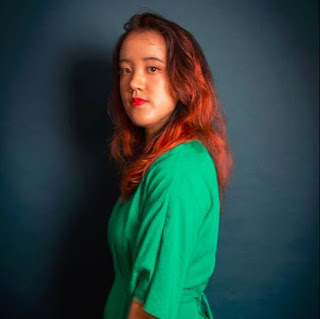C.K. Chau is the author of the new novel Good Fortune. It's an updated version of Jane Austen's classic Pride and Prejudice, set in New York City's Chinatown in the early 2000s. Her work has appeared in a variety of publications, including Bright Wall/Dark Room.
Q: Why did you decide to write this updated version of Pride and Prejudice set in New York City’s Chinatown?
A: Pride and Prejudice is a very modern story in how it grounds a sharp and perceptive awareness of social dynamics and class commentary within a more sentimental story of family. Setting it in Chinatown allowed me to riff on parallels I saw echoed in the Asian-American community and engage with the core themes of the source material in a different way.
Q: What did you see as the right balance between Jane Austen’s version of the story and your own?
A: It’s an act of translation in a lot of ways. You want to capture the spirit and the feeling of the original that moved you, but it should reflect the new language you’re using. I knew I wanted to highlight the humor because that voice and perspective is so fundamentally important to the act of social observation, but it also needed to sound like the neighborhoods and the communities I came up in.
In the novel, Elizabeth moves through a variety of different social circles and struggles to find her footing and navigate herself, and the tension between these places helps us situate her in context. I tried to do the same thing with the book - tried to find the right kind of friction to reveal something new.
Q: Why did you choose to set the story in the early 2000s?
A: One of the key issues of the book for me was this idea of home. LB feels very defensive about trying to preserve the community she has as she knows it, which means protecting the community center from development.
The early 2000s in New York seemed like the perfect time because the city itself sat on the cusp of transition between a grittier memory of New York and where it is today. There were a lot of conversations then about the role of development, with Chinatown in particular, and I felt LB would be part of that conversation.
It was also such a rich period in terms of culture and trends, and it gave me a chance to explore some of the funnier trends I remember and build up the comedy.
Q: The writer Carolyn Huynh said of the book, “With snappy banter and a lot of heart, Chau weaves a surprising new tale from a classic love story. Jane would have been proud.” What do you think of that description, and why do you think so many people are still fascinated by Austen's work?
A: I’m honored by it! It is an incredibly intimidating thing to try to approach material people know and love so well. No one wants to see their favorites mangled.
Austen is rightfully beloved because her stories are solidly built and satisfying. They’re smart and funny, emotionally engaging, and so rich. No matter how many times I’ve read her, I always walk away from a reread understanding something new.
Q: What are you working on now?
A: For now, I’m just kicking around new ideas! It’s always a thrilling and terrifying prospect to jump back into a blank page.
I’m also considering resurrecting an old newsletter I had about media and culture to catch my stray thoughts in the meantime.
Q: Anything else we should know?
A: I’m not great at social media but you can catch me on the website formerly known as Twitter at @chauckwrites or keep up with me on my website (the home of the aforementioned dormant-for-now newsletter). It’s been incredible to hear the different reactions and conversations going on, and I hope I can share more soon!
--Interview with Deborah Kalb


No comments:
Post a Comment